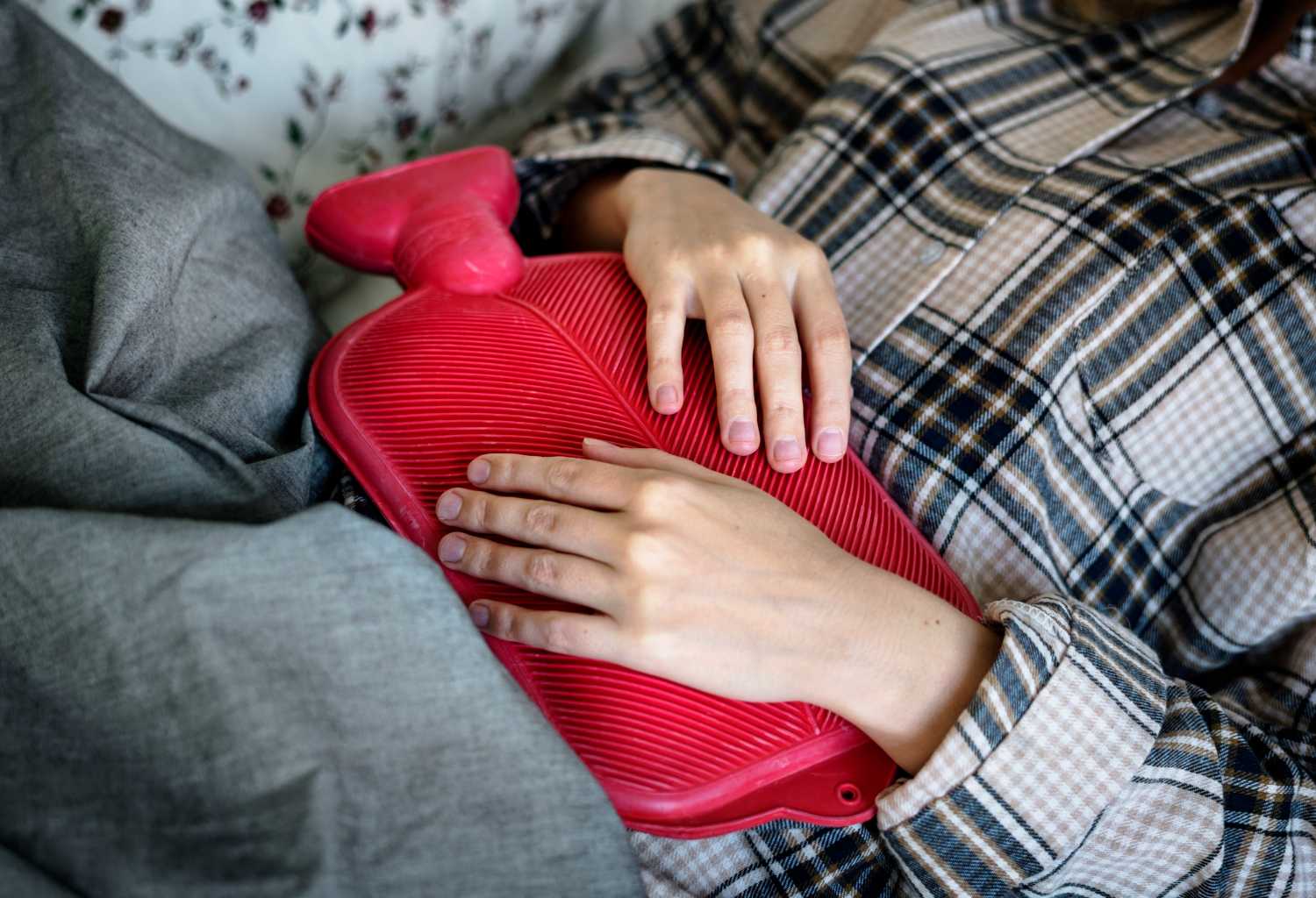
A woman experiencing mild abdominal discomfort, symbolizing ovulation-related bloating.
Feeling unusually full or bloated mid-cycle? You're not alone. Many women experience bloating during ovulation, often mistaking it for digestive issues or premenstrual symptoms. This temporary discomfort is a normal part of the menstrual cycle and can be managed with a few lifestyle adjustments.
This article breaks down why bloating happens during ovulation, what symptoms to watch for, and simple ways to find relief.
Hormonal fluctuations are the primary reason behind ovulation bloating. These shifts prepare the body for potential conception and can trigger temporary water retention and abdominal pressure.
Key hormonal changes during ovulation include:
These changes affect fluid balance and digestion, making you feel bloated or heavier than usual.
Several factors can contribute to bloating during this phase:
In some cases, bloating might be linked to underlying conditions like polycystic ovary syndrome (PCOS), endometriosis, or ovarian cysts.

Common ovulation symptoms like mild cramping and bloating managed with home remedies.
Bloating during ovulation often feels like a swollen belly or unusual fullness. Other symptoms may include:
Most women notice bloating between days 11 and 14 of their cycle. Symptoms may last a few hours or extend up to two days. Some may feel bloated until their next period begins.
Managing ovulation bloating often involves simple lifestyle tweaks. Here are proven ways to ease discomfort:

Potassium- and magnesium-rich foods that help ease bloating during ovulation.
While occasional bloating during ovulation is normal, seek medical advice if you experience:
These signs could point to a more serious condition that requires evaluation.
Bloating during ovulation is a common yet under-recognized part of the menstrual cycle. Knowing the symptoms and their root causes helps women manage the condition more effectively. For most, simple lifestyle changes are enough to ease the discomfort. If symptoms become intense or persistent, don’t hesitate to consult a doctor. Early assessment can rule out underlying issues and provide tailored treatment options.
FAQs About Bloating During Ovulation
1. Is it normal to feel very bloated during ovulation?
Yes. Most menstruating women experience bloating during ovulation due to hormone-related water retention and digestive changes.
2. How long does ovulation bloating last?
Typically, it lasts a few hours to two days. In some cases, bloating may persist until the start of menstruation.
3. How is ovulation bloating different from premenstrual bloating?
Ovulation bloating happens mid-cycle (around day 14), while premenstrual bloating occurs 7–14 days before your period. Premenstrual bloating often comes with mood swings and breast tenderness.
4. Why do I feel unwell during ovulation?
The hormonal shifts can cause fatigue, cramping, mood changes, and nausea. These are all normal symptoms of ovulation.
5. Can ovulation make you feel tired?
Yes. A rise in progesterone during ovulation can cause fatigue and a drop in energy levels.
6. Is ovulation pain a sign it's too late to conceive?
Not necessarily. Ovulation pain signals that the egg is being released. Conception is still possible within 24–36 hours after ovulation.
We offer expert care across key specialties, including Medicine, Cardiology, Orthopaedics, ENT, Gynaecology, and more—delivering trusted treatment under one roof.
Prakash Hospital Pvt. Ltd. is a 100 bedded NABH NABL accredited multispecialty hospital along with a center of trauma and orthopedics. We are in the service of society since 2001.
OUR SPECIALITIES
Contact Us
D – 12A, 12B, Sector-33, G. B. Nagar, Noida, Uttar Pradesh 201301
+91-8826000033

© 2025 All rights reserved.
Designed and Developed by Zarle Infotech